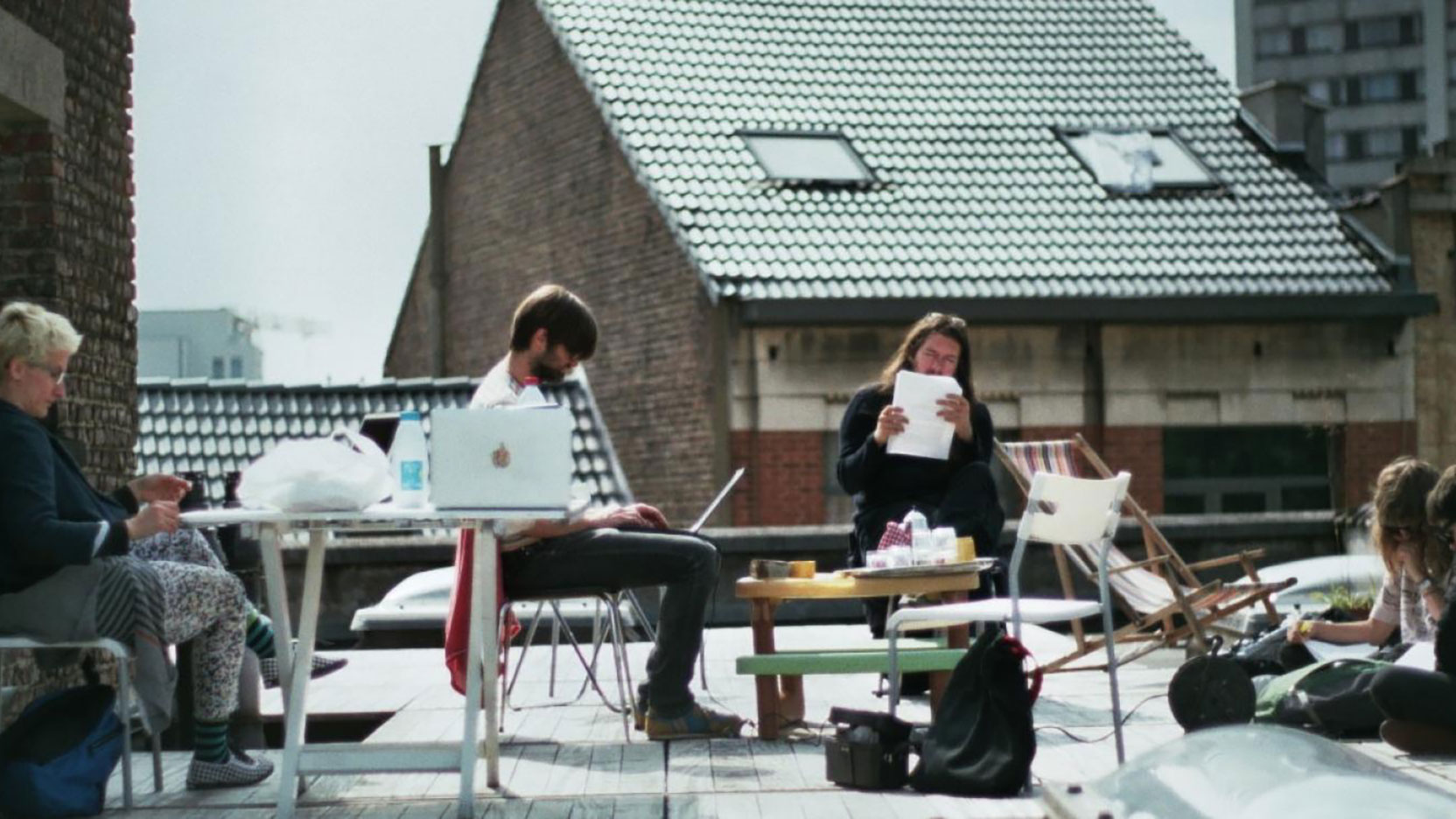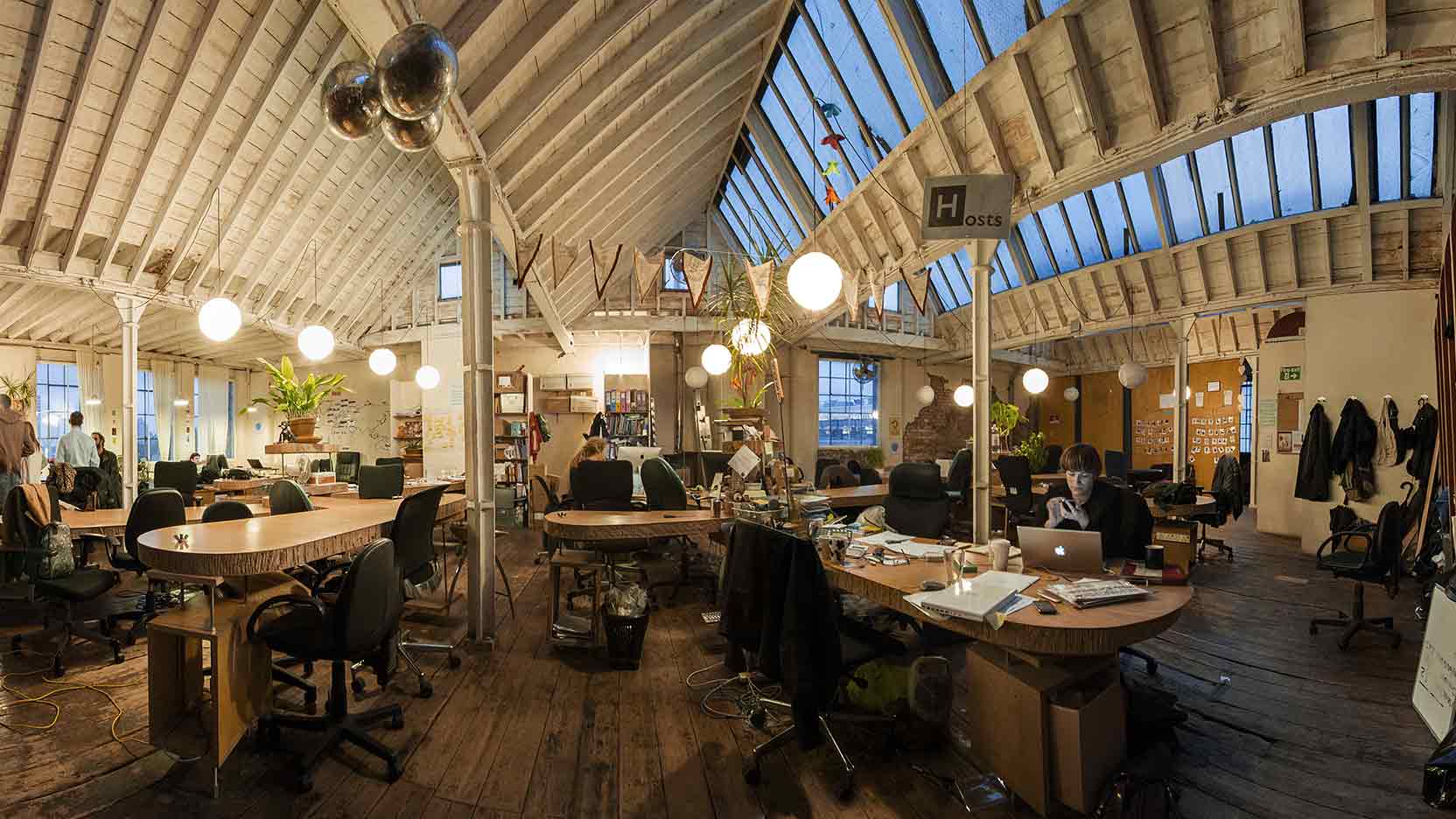In 1985, the Harvard Business Review published an article entitled “Your office is where you are”. Today, the generation of workers without a fixed office, nomadic workers without any professional attachments who go from one project to another, fully realizes the scope of this prophecy. Is the traditional office in the process of becoming a vintage place one returns to almost nostalgically?
In his latest book (La Société automatique, L’avenir du travail, Fayard, 2015) the philosopher Bernard Stiegler considers that society’s growing empowerment spells the death of employment as we know it today. Digital technology, robotics and the collaborative economy are profoundly changing our relationship to work. Freelance work is developing and the methods derived from the web industry — flexible, mobile methods and so on – now inspire other sectors. Increasingly common in France, the practice of teleworking is said even now to concern up to 10% of employees in the tertiary sector. The cubicle should be worried. So what are the new spaces and modes of creation that are supplanting our old work routines? A short glossary of a changing world.
Co-working
The independent worker is not necessarily an isolated worker. Co-working spaces where entrepreneurs or freelance workers can work together are multiplying. They offer much more than just a workstation: these are stimulating places where people interact with no hierarchy, which foster collaboration between people with complementary profiles. For example, La Mutinerie in Paris displays the slogan “Free Together”. More than 200 co-working spaces are listed in France and 1,800 worldwide.
Remote
Remote work is fully reflected in professional nomadism: at home, at the coffee shop, in a library or in a co-working space, workers with a computer and an Internet connection no longer need to go to the office to see their projects through. Proof of the enthusiasm for this new work organization is that more and more sites are posting job offers that allow flexible organization and remote work: We work remotely, FlexJobs, Working Nomads, etc.
Fablab
Fablabs, or fabrication laboratories, came into existence at MIT. They are a favourite space of expression for makers. A fablab is a production workshop open to all, equipped with traditional tools and computer-coordinated machines (3D printers, laser cutters, milling machines, etc.). Access to a fablab is said to render users more creative and more productive: this is no doubt what explains the enthusiasm of industrialists such as Renault and Airbus, which have already included fablabs in their research centres.
Hackathon
More than a meeting, the hackathon (contraction of “hack” and marathon) originally brought developers together to respond in a given (very short) time to a common challenge by creating prototype application. Now widespread, the format is no longer the prerogative of geeks and many organizations (municipalities, businesses) make use of them to meet all kinds of needs. In January 2016, the City of Paris organized a hackathon to boost safety and prevention in the event of a crisis situation.
Design thinking
Widely used in the context of hackathons, design thinking is an approach of innovation that focuses on the human factor and fosters interdisciplinary work. The analytical competences of technicians (engineers, scientists, computer scientists, etc.) and the intuition of creative people (designers, artists, etc.) interact to design a product that is as close to the user’s needs as possible. For example, at GE Software, the traditional model of the specifications sheet is tending to disappear and be supplanted by an iterative model consisting of progressing step by step without detracting from the value of errors, which on the contrary allow people to improve the final product.
Digital labour
For sociologist Antonio Casilli, internet users are unwitting workers. Digital Labour designates all the daily digital activities of users of social platforms, mobile applications and connected objects, which, because they produce value, may be assimilated to a job. It may be an invisible job, but it is one that generates substantial profits.
Micro-travail
Directly correlated to digital labour is micro-work – tiny, ultra simple computer tasks that robots do not yet know how to process in our place (verifying keywords, writing commentaries, participating in a forum, transcribing a sound into text, etc.). But unlike digital labour, these tasks are subcontracted to internet users in exchange for small remuneration. Mechanical Turk, the first micro-work platform launched by Amazon, is regularly singled out as being ethically contestable
Slasher
For a slasher, having a single job is passé: slashers make the most of their numerous competences to juggle several jobs. They could be a writer/designer/graphic designer or even a painter/lawyer! This formula is often precarious and something a person submits to, but it tends to be increasingly a choice and something that gives people status.
Switcher
Similar to a slasher. The notion of a defined, coherent career background does not matter much to the switcher, who is capable of literally changing occupations as opportunities, encounters or desires come along.
Header credits : foam



